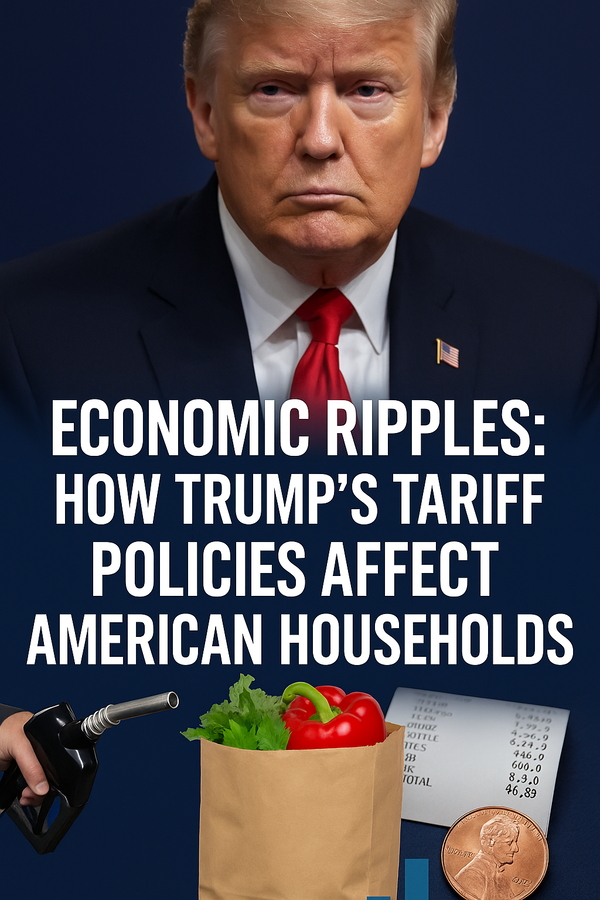Economic Ripples: How Trump's Tariff Policies Affect American Households

President Donald Trump’s recently proposed import tariff plan has sparked nationwide debate—not just in political circles but also around American dinner tables. With a 10% blanket tariff on all imported goods and steep increases on specific items like steel and aluminum, many Americans are asking: how will Trump's tariffs affect my household budget?
Rising Costs of Everyday Goods
Economists warn that across-the-board tariffs will increase the cost of consumer products ranging from electronics and appliances to clothing and groceries. Since a significant portion of these goods are imported, retailers may pass increased import taxes directly to consumers. According to the nonpartisan Tax Foundation, the proposed tariffs could cost the average U.S. household up to $1,700 per year in higher prices.
Searches for terms like “will Trump tariffs raise prices” and “impact of tariffs on cost of living” have spiked in recent days, showing growing concern among U.S. consumers.
Small Businesses and Job Markets at Risk
Local retailers and small manufacturers, many of whom rely on foreign raw materials or finished goods, are particularly vulnerable. Tariffs on steel and aluminum—set to rise from 25% to 50%—will drive up costs for construction, auto, and packaging sectors. That could lead to job cuts, reduced wages, or business closures, further straining middle- and working-class families.
Americans searching “Trump import tax impact on small businesses” are finding early signs that economic ripples may soon turn into financial waves.
Inflation and Supply Chain Pressures
Trump’s tariff strategy may also worsen inflation, which is already a major concern for American households. By disrupting global supply chains and increasing production costs, these tariffs can trigger a ripple effect that pushes up prices across the board. The result? Reduced purchasing power for the average consumer.
Recent Google Trends show growing interest in terms like “tariffs inflation 2025” and “Trump trade war effects on groceries.”
Political Backlash and Economic Uncertainty
While supporters claim tariffs will protect American jobs and industries, critics argue the long-term economic burden on families outweighs any short-term gains. The uncertainty around U.S. trade relations may also weaken the dollar and reduce investor confidence, leading to broader market instability.
What Can You Do?
To mitigate the impact, financial experts recommend:
- Buying local: Supporting U.S.-made products can help reduce dependency on imported goods.
- Budgeting for inflation: Prepare for price hikes in essentials like food and gas.
- Staying informed: Understanding policy shifts can help you make smarter spending and investment decisions.
Final Thoughts
Trump’s new tariff proposals may be aimed at reshaping global trade, but they come at a cost—one that could hit the wallets of millions of American families. As the plan unfolds, its full impact on the cost of living, inflation, and the U.S. economy will become clearer.
For those wondering “how do Trump tariffs affect me?”, the answer may soon be found in their next grocery bill.



